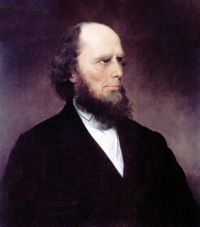I’m currently reading through Augustine’s Confessions with a group at Trinity Presbyterian and looked up some resources concerning Augustine’s life and work. Enjoy!
Tag: Pelagius
“Therefore I ought first to show that the faith by which we are Christians is the gift of God, if I can do that more thoroughly than I have already done in so many and so large volumes. But I see that I must now reply to those who say that the divine testimonies which I have adduced concerning this matter are of avail for this purpose, to assure us that we have faith itself of ourselves, but that its increase is of God; as if faith were not given to us by Him, but were only increased in us by Him, on the ground of the merit of its having begun from us. Thus there is here no departure from that opinion which Pelagius himself was constrained to condemn in the judgment of the bishops of Palestine, as is testified in the same Proceedings, ‘That the grace of God is given according to our merits,’ if it is not of God’s grace that we begin to believe, but rather that on account of this beginning an addition is made to us of a more full and perfect belief; and so we first give the beginning of our faith to God, that His supplement may also be given to us again, and whatever else we faithfully ask.
A recent formal doctrinal statement on the nature of salvation (or in technical theological terms, soteriology, or the study of salvation) signed on to by none other than Paige Patterson, president of Southwestern Baptist Theological Seminary (as one example), amongst others, like Emir Caner, is making quite the stir, even amongst classical Arminians (click to read). The statement was meant to counter what they view as the “threat” of Calvinism spreading in the SBC. At best, it is theological and historical sloppiness. At worst, it is theological and historical revisionism and an open slide toward heresy as it relates to the nature of man’s will as a result of the transmission of the sin of Adam to mankind.
The authors and signers claim they are speaking for the traditional view of the SBC on the issue of salvation. However, as Tom Ascol from Founders Ministries points out, this is hardly the case. Hopefully this will bring to light some issues that have been brewing for quite some time. They have drawn a line in the sand and either need to repent or split in my opinion. Yes, it’s that serious. These issues go beyond Calvinism versus Arminianism into the issues of Original Sin and the nature of the will, pre/post-fall, no less. In addition, I’ve included Tom Ascol’s response. Read on:
First of all, here’s the original doctrinal statement in question
Part 1 – Tom Ascol (Beginning of Response)
Part 2 – Tom Ascol
Part 3 – Tom Ascol
Could W.A. Criswell have signed this statement? – Tom Ascol
Part 4 – Tom Ascol
Part 5 – Tom Ascol
Part 6 – Tom Ascol
Part 7 – Tom Ascol
Part 8 – Tom Ascol
Part 9 – Tom Ascol
Part 10 – Tom Ascol
Part 11 – Tom Ascol
Part 12 – Tom Ascol
Part 13 – Tom Ascol
Semi-Pelagian/Pelagian Point in Question: The Recent SBC Statement on Salvation: A Point of Concern – John Aloisi
The Traditional Southern Baptist View of Salvation? – James White (MP3)
And finally, for a historical, theological background on what the early church concluded pertaining to not only Pelagianism but Semi-Pelagianism, you just have to read the Canons of Orange from 529 AD.

- The Disturbing Legacy of Charles Finney – Dr. Michael Horton
- A Wolf in Sheep’s Clothing – Phil Johnson
I still have yet to understand why so many leading evangelical pastors (Billy Graham and the late Jerry Falwell to name two) and others in the movement uphold this man as someone who championed the faith once for all delivered to the saints. If there is one person that can be blamed for so many of the current theological and ecclesiological problems we find in the evangelical movement (though there are many causes to be sure), it is Charles Finney. These articles deal with the content of what Finney taught and how it was anything but evangelical, in the historical, Gospel sense of the word.
After reading these, you will see a little bit clearer how much of his influence is still felt in the church today and how much damage it continues to cause. Even much of the pragmatic, mega, seeker movement in the church owes its pragmatic thought process about how to “get people in the door” to the teaching of Finney, which he himself rooted in the error of Pelgius, the fifth century heretic. Very insightful.
